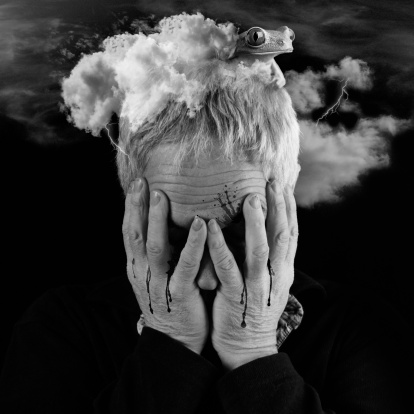Until recently, there wasn’t a reliable way to predict which of the patients suffering from first-episode psychosis (FEP) would respond well to treatment, and which would not. However, a new study conducted by researchers at the King’s College London Institute of Psychiatry shows that brain-imaging technology may be used to identify patients who will likely respond to medication, and those who will be resistant to treatment.
Psychotic episodes are present in conditions such as schizophrenia and bipolar disorder and many patients do not respond to the initial treatment, putting them at serious risk of further psychotic episodes and deteriorating mental health.
What Is First-Episode Psychosis?
Simply put, first-episode psychosis refers to the first time an individual has psychotic symptoms, or a full-on psychotic episode. Psychotic episodes occur in three stages of varying length.
The first phase, called the prodome phase, is relatively mild. It consists of a variety of symptoms that may include loss of concentration, anxiety, sleep disruption, decreased motivation, lowered mood, strange or irrational beliefs, social withdrawal, impaired functioning and suspicious thoughts.
The next phase of a psychotic episode is the acute phase. During this stretch of severe illness, patients are likely to be highly confused and delusional, and often experience hallucinations. Much of an individual’s behavior is likely to be out of character during this period.
Patients who receive effective treatment will eventually enter the recovery phase. Prompt treatment often means that an individual will never experience another psychotic episode. Patients who do not receive rapid treatment may experience much longer acute phases, and be more prone to future psychotic episodes.
A Reduction in Gyrification
The study published in August 2013 in JAMA Psychiatry used magnetic resonance imaging (MRI) to scan the brains of 126 people. Eighty of these people had FEP, while 46 healthy people were used as a control group. The people with FEP were then treated with antipsychotic medication over the course of 12 weeks, at which point their response to treatment was evaluated.
The researchers hoped to find out whether the brain scans revealed any differences between the brains of the FEP patients who responded well to treatment and those who did not. They also compared the brain activity of the FEP patients with that of normal healthy patients. What they found is that the FEP patients showed less gyrification across multiple brain regions than healthy individuals, and that the treatment-resistant patients showed still less gyrification than the patients who responded well to treatment.
Gyrification refers to the folding of the cerebral cortex—the outer gray matter of the brain. This folding gives all mammal brains their familiar wrinkled appearance. The wrinkling and folding of the cortex creates more surface area within the space available in the skull, which in turn results in more brain activity. As a result, the amount of gyrification in the brain is believed to be connected to overall species intelligence.
Using the New Research
The researchers at King’s College London hope that this information and future research will help to improve treatment for patients who suffer from psychosis. One of the ways in which the results of this study can be used is by rapidly identifying patients who may not respond to standard antipsychotic medications and beginning the process of creating an alternate and personalized treatment program for them. Since rapid treatment is the best way to prevent further psychotic episodes, this information might mean the difference between a single psychotic event and multiple debilitating episodes.
The brain images from these patients and from patients in future studies may also help in the discovery of new medications and treatment methods that will help non-responsive individuals. The lead researcher on this study, Dr. Paola Dazzan, notes that the treatment of psychosis has advanced very little over the course of the last 50 years. Brain scanning and mapping may help this to change, allowing medical researchers to tailor new medications specifically to groups that are currently nonresponsive.









